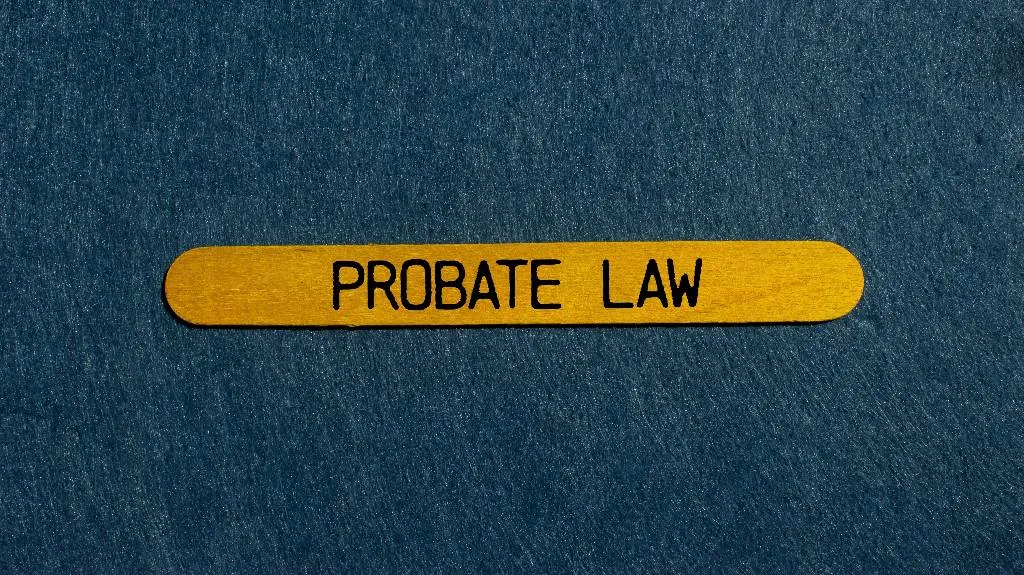When it comes to estate planning, the term “deed” frequently comes up. But what exactly is a deed, and why is it so crucial in the realm of estate planning? This comprehensive guide aims to demystify the concept of a deed, exploring its types, importance, and role in estate planning. Whether you’re planning your estate or managing the estate of a loved one, understanding deeds is essential. Let’s delve into the intricacies of deeds, shedding light on their significance in ensuring a smooth estate planning process.
What is a deed?
A deed is a legal document that serves as proof of the ownership of real property. It is a written instrument that conveys title or an interest in property from one party (the grantor) to another (the grantee). The primary function of a deed is to transfer ownership rights, and it must be properly executed, delivered, and accepted to be legally binding.
Get a Free Consultation Today
Types of deeds
In estate planning, several types of deeds are commonly used. Each type serves a specific purpose and offers varying levels of protection to the parties involved. Here are the most common types of deeds:
1. General Warranty Deed
A general warranty deed provides the highest level of protection to the grantee. It guarantees that the grantor holds clear title to the property and has the right to transfer it. Additionally, it assures the grantee that the property is free from any encumbrances or claims, both during the grantor’s ownership and extending back to the property’s origins.
2. Special Warranty Deed
A special warranty deed offers a lower level of protection compared to a general warranty deed. It guarantees that the grantor has not caused any encumbrances or claims on the property during their ownership. However, it does not provide any guarantees regarding the property’s history before the grantor’s ownership.
3. Quitclaim Deed
A quitclaim deed provides the least protection to the grantee. It transfers whatever interest the grantor has in the property without making any warranties or guarantees about the title’s validity. Quitclaim deeds are often used in situations where the transfer is between family members or to clear up title issues.
4. Grant Deed
A grant deed is commonly used in California and provides a middle ground between general and quitclaim deeds. It guarantees that the grantor has not transferred the property to anyone else and that there are no undisclosed encumbrances imposed by the grantor.
The Importance of Deeds in Estate Planning
Deeds play a crucial role in estate planning for several reasons:
1. Proof of Ownership
A deed serves as legal proof of the ownership of real property. This is vital when transferring property to heirs, selling property, or resolving any disputes over ownership.
2. Transfer of Property
In estate planning, transferring property to beneficiaries is a common goal. Deeds facilitate this transfer, ensuring that the property is legally conveyed to the intended recipients.
3. Avoiding Probate
Properly executed deeds can help avoid probate, a lengthy and costly legal process. By transferring property through deeds, you can ensure a smoother and faster transfer of assets to your heirs.
4. Tax Implications
Deeds can have significant tax implications. Certain types of deeds, such as those used in gifting property, may have tax consequences that should be considered in the estate planning process.
Creating a Deed: Key Considerations
Creating a deed involves several crucial steps and considerations to ensure it is legally binding and serves its intended purpose. Here are some key aspects to keep in mind:
1. Accurate Description of Property
The deed must include an accurate legal description of the property being transferred. This ensures there is no ambiguity about what property is being conveyed.
2. Clear identification of parties
The deed should clearly identify the grantor (current owner) and the grantee (new owner). Proper identification helps prevent disputes and ensures the correct parties are involved in the transaction.
3. Proper execution
The deed must be properly executed, typically requiring the signatures of the grantor, grantee, and notary public. Some states may have additional requirements, such as witness signatures.
4. Delivery and Acceptance
For a deed to be legally effective, it must be delivered to and accepted by the grantee. This can be done physically or by recording the deed in public records.
5. Recording the Deed
Recording the deed with the appropriate county or municipal office is crucial. This step provides public notice of the transfer and protects the grantee’s ownership rights against future claims.
Deeds and estate planning strategies
Incorporating deeds into your estate planning strategy can provide several benefits, depending on your goals and circumstances. Here are some common estate planning strategies involving deeds:
1. Joint Tenancy with Right of Survivorship
A Joint Tenancy with Right of Survivorship allows property to pass directly to the surviving joint tenant(s) upon the death of one tenant without going through probate. This can be an effective way to ensure a smooth transfer of property to a spouse or other joint tenant. However, it has a significant limitation. If the joint tenant passes before you, or simultaneously, the home will end up in probate.
2. Life Estate Deed
A life estate deed allows the grantor to retain the right to use the property during their lifetime while designating a remainderman who will receive the property upon the grantor’s death. This can help avoid probate and provide clarity regarding future ownership. However, these deeds create significant issues when attempting to finance the property with a mortgage, refinance, or any other transfer of the property.
3. Transfer on Death Deed
A Transfer on Death (TOD) Deed, also known as a Beneficiary Deed, allows property to be transferred to a designated beneficiary upon the owner’s death without going through probate. This deed is revocable, allowing the owner to change the beneficiary or cancel the deed at any time. Similar to the joint tenancy deed discussed previously, the limitation these deeds present is when the named beneficiary dies before or simultaneously with you.
4. Trust Deed
Placing property in a trust can offer numerous benefits, including avoiding probate, reducing estate taxes, reducing capital gains taxes, and providing for the management of property in the event of incapacity. A trust deed transfers ownership of the property to the trust, which is managed according to the terms of the trust agreement. This is typically the more beneficial type of deed in a comprehensive estate plan.
Common Mistakes to Avoid
While deeds are powerful tools in estate planning, mistakes can lead to significant legal and financial complications. Here are some common mistakes to avoid:
1. Failing to update deeds
Life changes such as marriage, divorce, or the birth of a child may necessitate updating your deeds. Failing to do so can result in unintended consequences, such as property passing to the wrong person.
2. Not Considering Tax Implications
Transferring property through deeds can have tax consequences, including property taxes, gift taxes and capital gains taxes. It’s important to consult with a tax professional to understand and mitigate these implications.
3. Improper execution
A deed must be properly executed to be legally binding. This includes ensuring all required signatures are obtained and that the deed is notarized and recorded according to state laws.
4. Ignoring State-Specific Requirements
Each state has specific requirements for deeds, including how they must be executed and recorded. Failing to comply with these requirements can invalidate the deed.
Conclusion
Deeds are a fundamental component of estate planning, providing a legal means to transfer ownership of real property. Understanding the different types of deeds, their importance, and how to properly execute them is crucial for anyone involved in estate planning. By incorporating deeds into your estate planning strategy, you can ensure a smoother transfer of assets, avoid probate, and provide clarity for your heirs.
Whether you’re creating a joint tenancy with a right of survivorship, a life estate deed, a transfer on death deed, or placing property in a trust, consulting with an experienced estate planning attorney is essential. They can help you navigate the complexities of deeds and ensure your estate planning goals are achieved. In conclusion, deeds are more than just pieces of paper; they are powerful tools that can shape the future of your estate. By understanding and utilizing deeds effectively, you can protect your assets, provide for your loved ones, and achieve peace of mind in your estate planning journey.
If you have any questions, schedule a free consultation with our estate planning attorneys in Rocklin, California. Call (916) 333-7910 or fill out the contact form at the bottom of this page. Filippi Law Firm, P.C., provides legal services in estate planning, probate, trust administration, and trust litigation in the greater Sacramento area and Placer County, with a focus in Rocklin, Roseville, Lincoln, and Granite Bay. Consultations are free, and they can be done over the phone, via Zoom, or in-person at our office in Rocklin.




